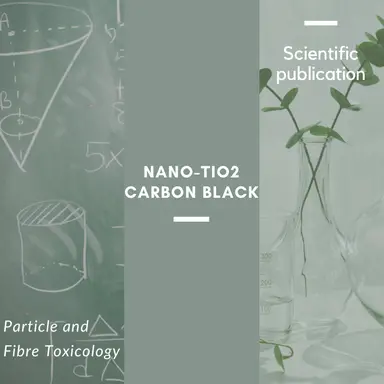
According to a recent study by a team of French researchers, titanium dioxide and carbon black nanoparticles have the ability to disrupt neuronal homeostasis and increase the intrinsic sensitivity of neurons to neuroinflammation. For the researchers, the development of Alzheimer’s disease could be linked to human exposure to these nanoparticles.
This study was published on 15 July 2022 in the Journal Particle and Fibre Toxicology. It was conducted by a group of scientists working in five French research units.
Background
Epidemiological emerging evidence shows that human exposure to some nanosized materials present in the environment would contribute to the onset and/or progression of Alzheimer’s disease (AD). The cellular and molecular mechanisms whereby nanoparticles would exert some adverse effects towards neurons and take part in AD pathology are nevertheless unknown.
Results
This study provides the prime evidence that titanium dioxide (TiO2) and carbon black (CB) nanoparticles (NPs) bind the cellular form of the prion protein (PrPC), a plasma membrane protein well known for its implication in prion diseases and prion-like diseases, such as AD. The interaction between TiO2- or CB-NPs and PrPC at the surface of neuronal cells grown in culture corrupts PrPC signaling function. This triggers PrPC-dependent activation of NADPH oxidase and subsequent production of reactive oxygen species (ROS) that alters redox equilibrium. Through PrPC interaction, NPs also promote the activation of 3-phosphoinositide-dependent kinase 1 (PDK1), which in turn provokes the internalization of the neuroprotective TACE α-secretase.
This diverts TACE cleavage activity away from:
• TNFα receptors (TNFR), whose accumulation …













